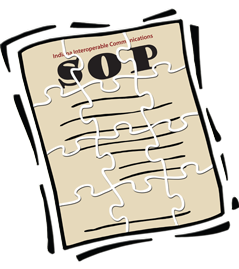Ensuring Effective SOPs in the Pharmaceutical Industry
June 28th, 2013 // 4:51 pm @ jmpickett
Latest FDA and cGMP Compliance News
Every year, FDA hands out plenty of 483s and warning letters, and many of them center on the failure to have or to properly utilize their SOPs, which is really the most fundamental aspect of cGMP rules.
The purpose of SOPs in the pharmaceutical industry is clear – to make sure that all necessary job tasks are performed in a highly consistent and correct manner. One of the big ways to ensure this is to have properly written SOPs and make sure they are followed.
FDA has for years pushed how important SOP compliance is, but the agency is focusing even more today on quality as what drives compliance. So, there is more weight on the importance of having a proper corporate approach to develop and properly use SOPs.
SOPs and 21 CFR 211.100
The definition of an SOP by FDA is very simple: They are written procedures that describe and detail all necessary job tasks. That statute state: There shall be written procedures for production and process control designed to assure that the drug products have the identity, strength, quality, and purity they purport or are represented to possess. Such procedures shall include all requirements in this subpart. These written procedures, including any changes, shall be drafted, reviewed, and approved by the appropriate organizational units and reviewed and approved by the quality control unit.
SOP compliance also means that a company has to train its employees on all needed job tasks. This is noted in 21 CFR 211.25. It applies to pharma but also to any life science company: Each person engaged in the manufacture, processing, packing, or holding of a drug product shall have education, training, experience, or any combination thereof to enable that person to perform the assigned function.
But, understanding SOPs and the purpose is one matter, complying with cGMP requirements is something else! Big companies have literally thousands of job tasks, and each one may have an SOP that has to be updated often. Even a small firm will have big SOP requirements.
Generally, we can group SOP compliance into these areas:
- Creating a QC unit that ensures compliance with SOPs
- Having an SOP for every task, need to be updated and understandable
- Proper and timely SOP distribution and proper validation that the SOP was read
- Employee comprehension of SOP must be confirmed
- CAPA program must be in place to identify and fix product quality issues
When it comes to the distribution of SOPs, you might think it is easy, but it is not. There can be thousands of SOP changes that affect thousands of employees. The sheer volume of SOP changes that has to be distributed and validated means that you will need to have an EDMS, or electronic data management system. Make sure that yourEDMS complies with Part 11 requirements and has totally secure access for program management and monitoring.
For more information on writing FDA compliant SOPs, please review our upcoming webinar.
to be continued….



